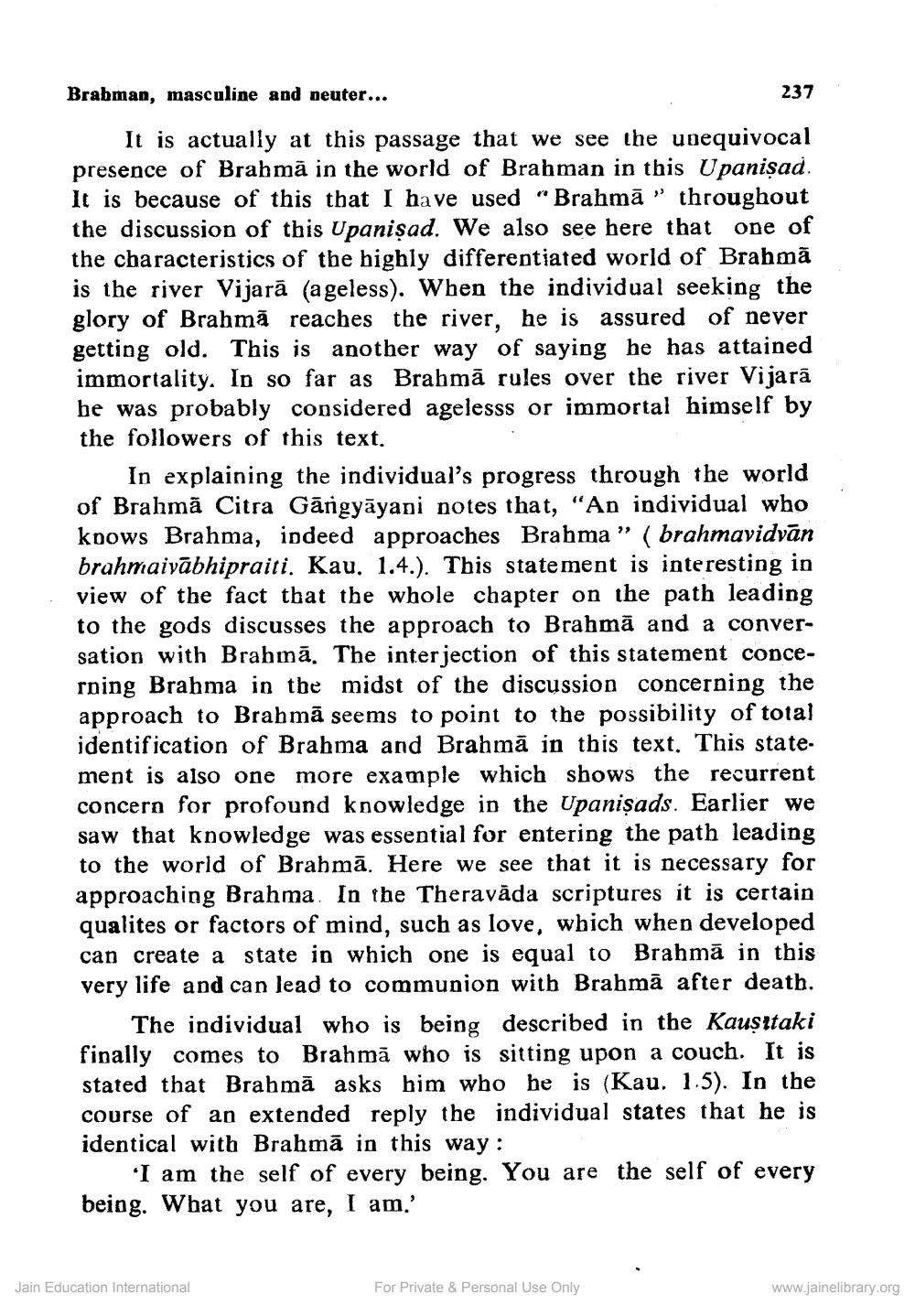________________
Brabman, masculine and neuter...
237
It is actually at this passage that we see the unequivocal presence of Brabmā in the world of Brahman in this Upanişad. It is because of this that I have used “Brahmā” throughout the discussion of this Upanişad. We also see here that one of the characteristics of the bighly differentiated world of Brahma is the river Vijarā (ageless). When the individual seeking the glory of Brahmā reaches the river, he is assured of never getting old. This is another way of saying he has attained immortality. In so far as Brahmā rules over the river Vijarā he was probably considered agelesss or immortal himself by the followers of this text.
In explaining the individual's progress through the world of Brahmã Citra Gārgyāyani notes that, "An individual who koows Brahma, indeed approaches Brahma ” (brahmavidvān brahmaivābhipraiti. Kau. 1.4.). This statement is interesting in view of the fact that the whole chapter on the path leading to the gods discusses the approach to Brahmā and a conversation with Brabmā. The interjection of this statement concerning Brahma in the midst of the discussion concerning the approach to Brabmā seems to point to the possibility of total identification of Brahma and Brahmā in this text. This state. ment is also one more example which shows the recurrent concern for profound knowledge in the Upanişads. Earlier we saw that knowledge was essential for entering the path leading to the world of Brabmā. Here we see that it is necessary for approaching Brahma. In the Theravāda scriptures it is certain qualites or factors of mind, such as love, which when developed can create a state in which one is equal to Brahmā in this very life and can lead to communion with Brahmā after death.
The individual who is being described in the Kausitaki finally comes to Brahmã who is sitting upon a couch. It is stated that Brahmā asks him who he is (Kau. 1.5). In the course of an extended reply the individual states that he is identical with Brahmā in this way:
I am the self of every being. You are the self of every being. What you are, I am.'
Jain Education International
For Private & Personal Use Only
www.jainelibrary.org




